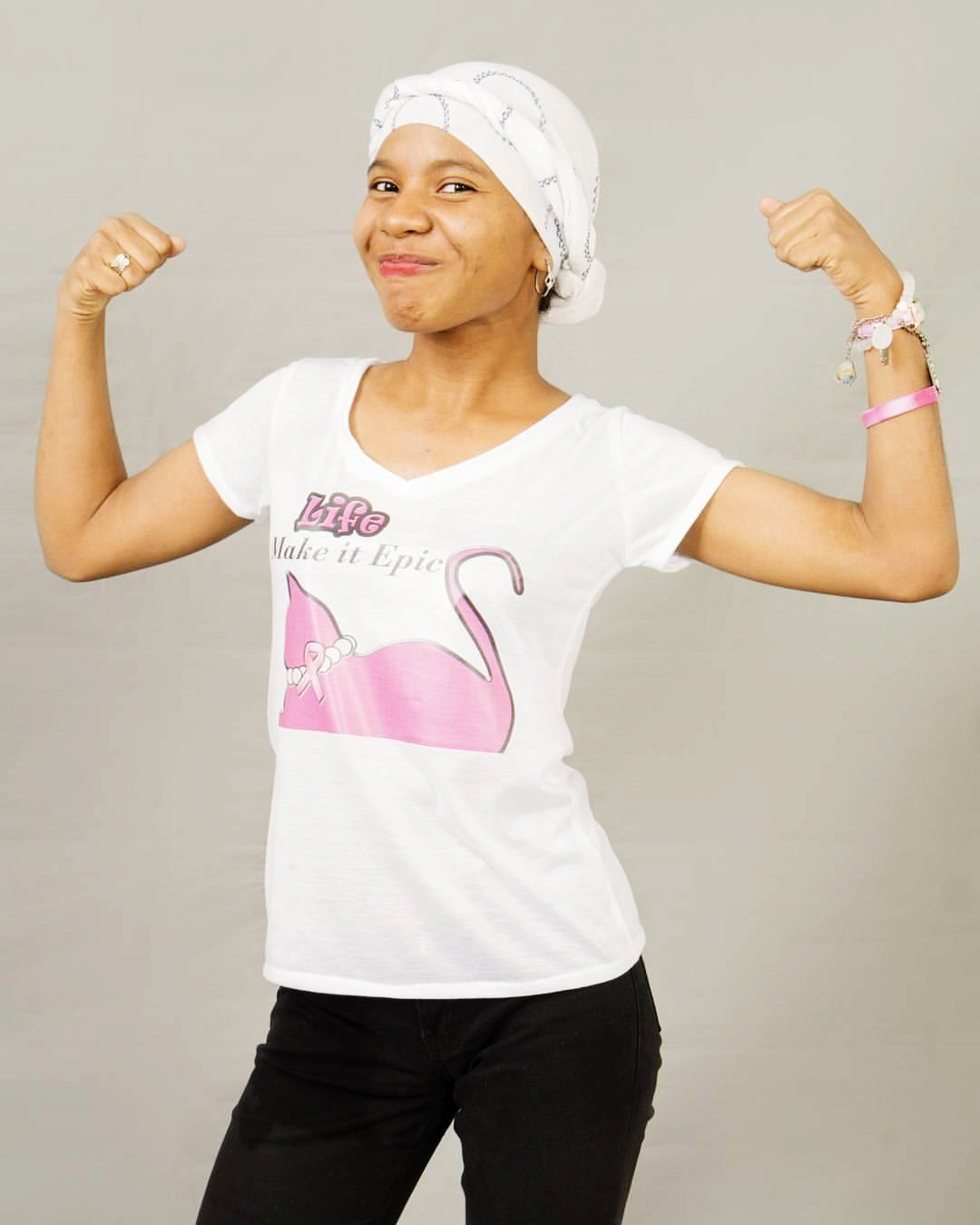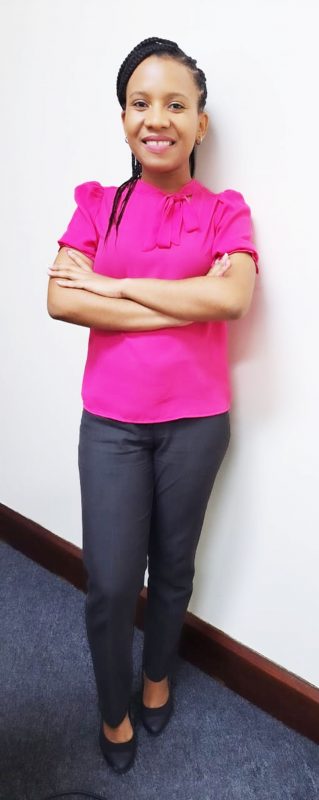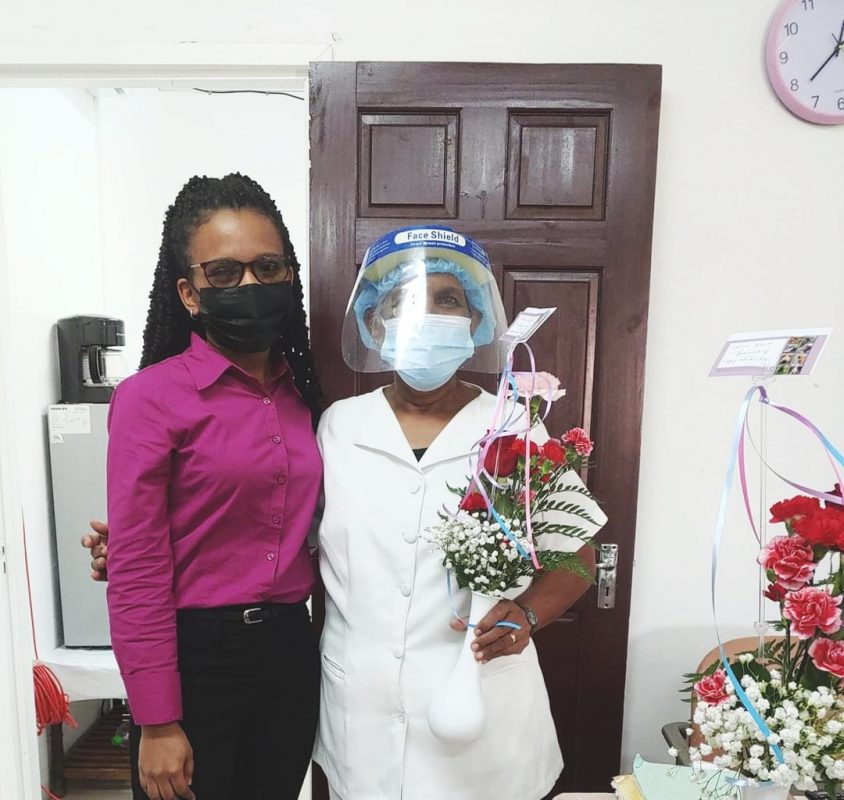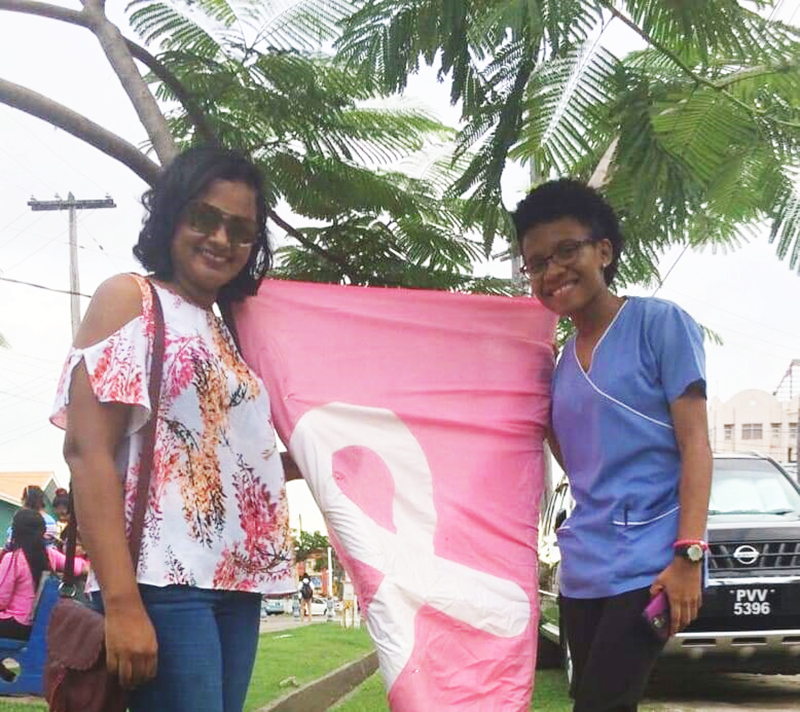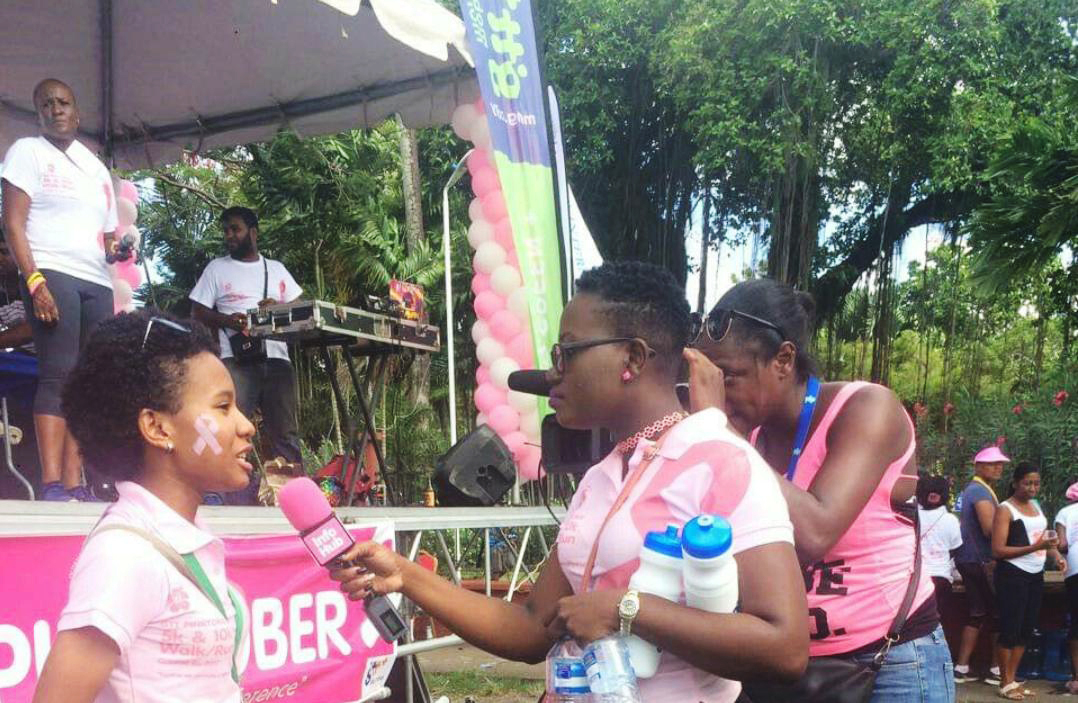Francine Leitch was 20 years old and had just entered her second year of study at the University of Guyana when she was diagnosed with a rare form of cancer. Now, seven years after that experience and five since she was declared cancer free, Leitch uses her voice to increase the awareness of all forms of cancer and to speak about the importance of a healthy lifestyle in general.
This also involves mental health as over the years she has realised how crucial that is, having seen the adverse effects of not being in a healthy mental state.
Growing up, Leitch said, while she would not describe herself as sickly she always knew something was wrong as she often battled for energy especially in her secondary days at Queen’s College.
It was not until 2015, at the age of 20, following many doctors’ visits and tests that she was diagnosed with mediastinal dysgerminoma. This form of cancer is known as germ cell tumours and it is rarely found in women. Even rarer was the area where it was found in Leitch’s case. It was in her chest, in the vicinity of her heart, when usually the tumour is found in the reproductive area.
The second of three daughters, Leitch’s journey was made much easier by the support of her parents along with other relatives and friends and for her giving hope to someone else is now of paramount importance.
According to the Mayo Clinic, germ cell tumours are growths of cells that form from reproductive cells. The tumours may be cancerous or not cancerous. Most germ cell tumours occur in the testicles or the ovaries. Some germ cell tumours occur in other areas of the body, such as the abdomen, brain and chest, though it’s not clear why. Germ cell tumours that occur in places other than the testicles and ovaries (extragonadal germ cell tumours) are very rare. Treatment options for germ cell tumours may include surgery to remove the tumour, chemotherapy with drugs that kill cancer cells and radiation therapy with powerful energy beams.
‘Trouble with my health’
Leitch recalled that as a child she always had a “bit of trouble with my health” as she felt faint or tired constantly. Different medical investigations were done but no diagnosis was made.
“I was used to not feeling the best in my body throughout the years of getting older. I was always mindful and being watchful to how my body responded to stress; the things I was eating; just taking precautions since we never really knew if something was wrong or that was just the way I was,” she shared.
In 2015 as she approached her 20th birthday, she said, her menstrual cycle became more painful than usual. “It was worse than it had ever been. I was in pain. I had a fever. It was just a lot…,” she said.
With prompting from her mother she visited a gynaecologist where tests were done, swollen lymph nodes were found and further investigation was recommended. The bottom of the report indicated that it could be tuberculosis or lymphoma and right away she knew the latter would have been cancerous. “Never in my life had I wanted it to be the other thing that is treatable,” she said.
A chest x-ray revealed a mass in her chest and she was referred to the Guyana Cancer Institute,
“Now all the while these investigations were going on my health was rapidly declining. I was having severe weight loss. It was like everything started to accelerate. I was having… night sweats…” she said.
At that time she was at UG and Leitch said she was not prepared to stop her studies even though her health was affecting them as her body weakened.
Things took a turn for the worse when she was rushed to the hospital and admitted because her blood count was so low. She recalled that the doctor said that had she not been taken to the hospital that night, she might have passed by the morning. Finally, a biopsy was done. In the weeks of waiting for the results, she was again admitted to the hospital and had to get blood transfusions.
At that point she was too weak to even walk, but Leitch, a fighter, said she still tried to be strong in her mind and still had not applied for a leave of absence from UG as she was adamant that whatever it was, it was not as threatening as it seemed. It was later confirmed that she had a rare cancer and she was then transferred to GPH to start her treatment of chemotherapy.
It was an “iffy process”, she said, because the cancer was rare and it was “really like let’s try this and see if it would work”. Following several opinions by various doctors who were consulted, the best solution for Leitch was arrived at and her chemo journey began.
Seven cycles
Leitch underwent seven cycles of chemotherapy and she said it was after the third cycle that she really comprehended what was happening.
“All the time I got my diagnosis and so on but the treatment was so hard and was so harsh that after the three cycles, when they said you have to do three more, I broke down and I cried. And I think I cried [then] for the first time apart from the time when I started to lose my hair…,” she said.
Her hair began falling out in clumps after the first cycle of chemotherapy, and she removed it all. Being a foodie as well, Leitch said, it was very hard to be unable to eat as she used to because nothing was staying down and the situation became very real. Just before the treatment as well, she was forced to finally take a year’s leave of absence from university.
Leitch said she did seven cycles of chemotherapy and was recommended for an eighth, but by that time she had had enough and she refused any further treatment.
“I was adamant that I had enough. I don’t know if that was the best decision then, but it is a very hard journey to go through. I think not just the diagnosis is hard but it is really the treatment that makes it a very difficult journey because you suffer weight loss, your blood cells are always up and down…your nail colour changes…your nerves get a little damaged so it is a lot of changes,” she shared.
Almost immediately after her last cycle, Leitch returned to university in September 2016 and she said she had a lot of support from her parents; her mother ensured that she had the right food to eat. She wore different head wraps to class, but being there was physically difficult as she did not have the stamina like before, and there were times when she broke down because “my body was not doing what it was supposed to do,” the cancer survivor said.
“The recovery was another journey but I would continuously have my checkups… and just have that support and over time my results kept coming out as being very good and then I was declared free of cancer as there is no sign of it anymore.”
Survivor
As a cancer survivor, Leitch said it is a journey that is continuous. She still does her routine check-ups and there is always that anxiety and navigating the space of listening to her body and being cognisant of what she eats and does. Using her experience to help and educate others is also an important part of the journey and giving support where she can.
It was not until about three years after the treatment, Leitch said, that her body started to “feel completely healthy”.
While she feels better today, she is always mindful of her health. It is not clear what caused the cancer, but she said it was suspected that she had it since birth and it slowly progressed or might have been dormant and when her immunity went down it sprang to life.
No one is 100% sure but Leitch said it has been a learning experience for her and her family and now she is an advocate for healthy eating. She did lower her voice to say, however, “I do like my KFC and ice cream from time to time”.
Leitch and her family advise people who are going through the treatment journey and they would become more encouraged because she is a survivor.
“We just try to give support. I know there are persons who are in contact with my parents who don’t have that support system but they would reach out to them for advice, guidance. … It is still a huge part of our lives because I may not have been here and if I can’t do something tangible I just try to be a listening ear, give encouragement to persons when they feel they can’t go on,” she said.
She is open and shares her story because people look at it as a sickness or death sentence and they don’t want to talk about it but she believes the more people talk then there will be more education and awareness and it may save someone’s life.
Leitch completed her medical technology degree but switched gears and did further studies at the university. Today she works at GTT as a problem solver. But her science was an important part that helped to guide her through her diagnosis and treatment process and it is not something she has abandoned.
She reminds youths and older folks as well that health is wealth and for them to take care of their health and take advantage of the public service facilities available as early detection is always key. Be more “gracious and compassionate to yourself,” the young cancer survivor advises.
